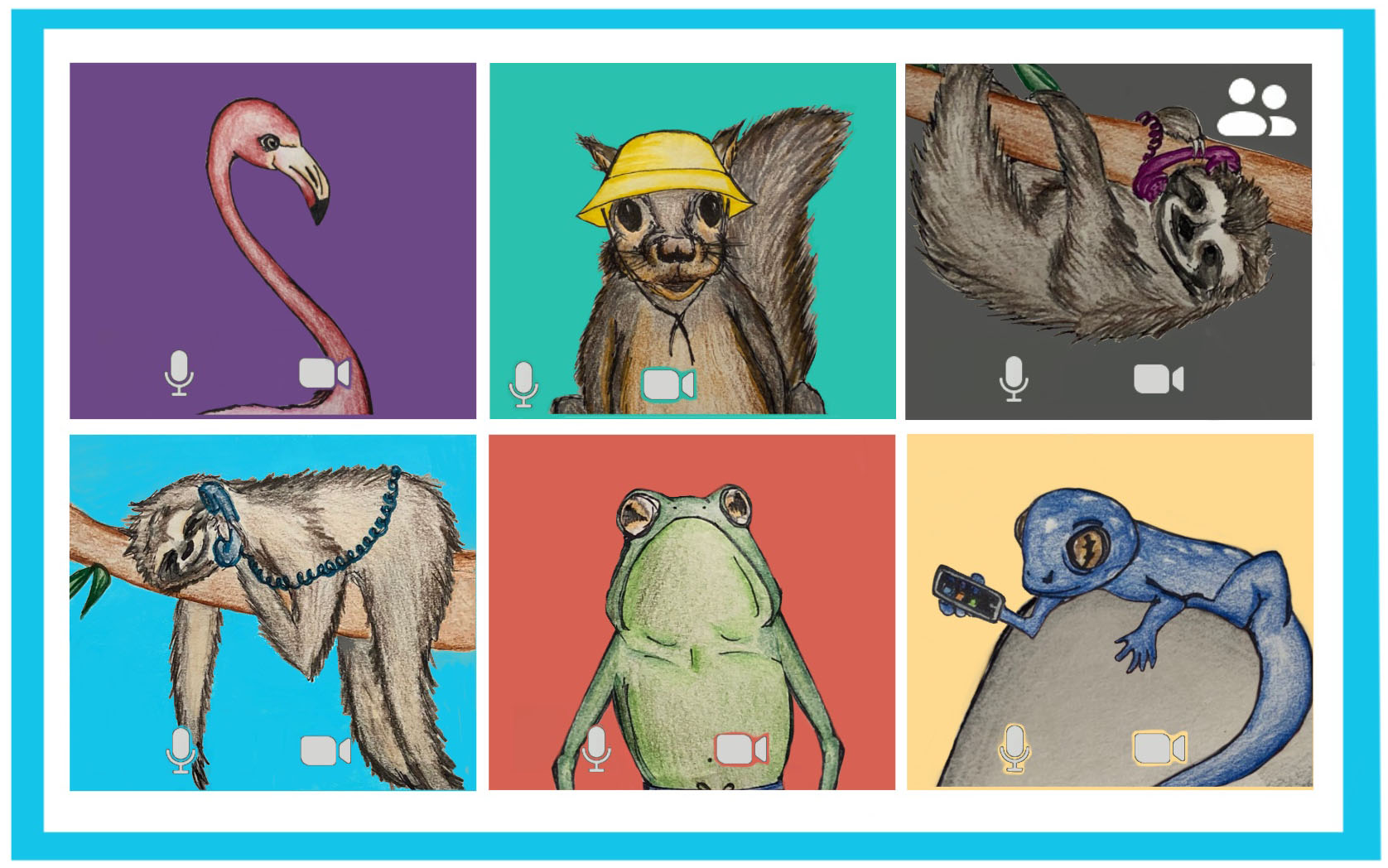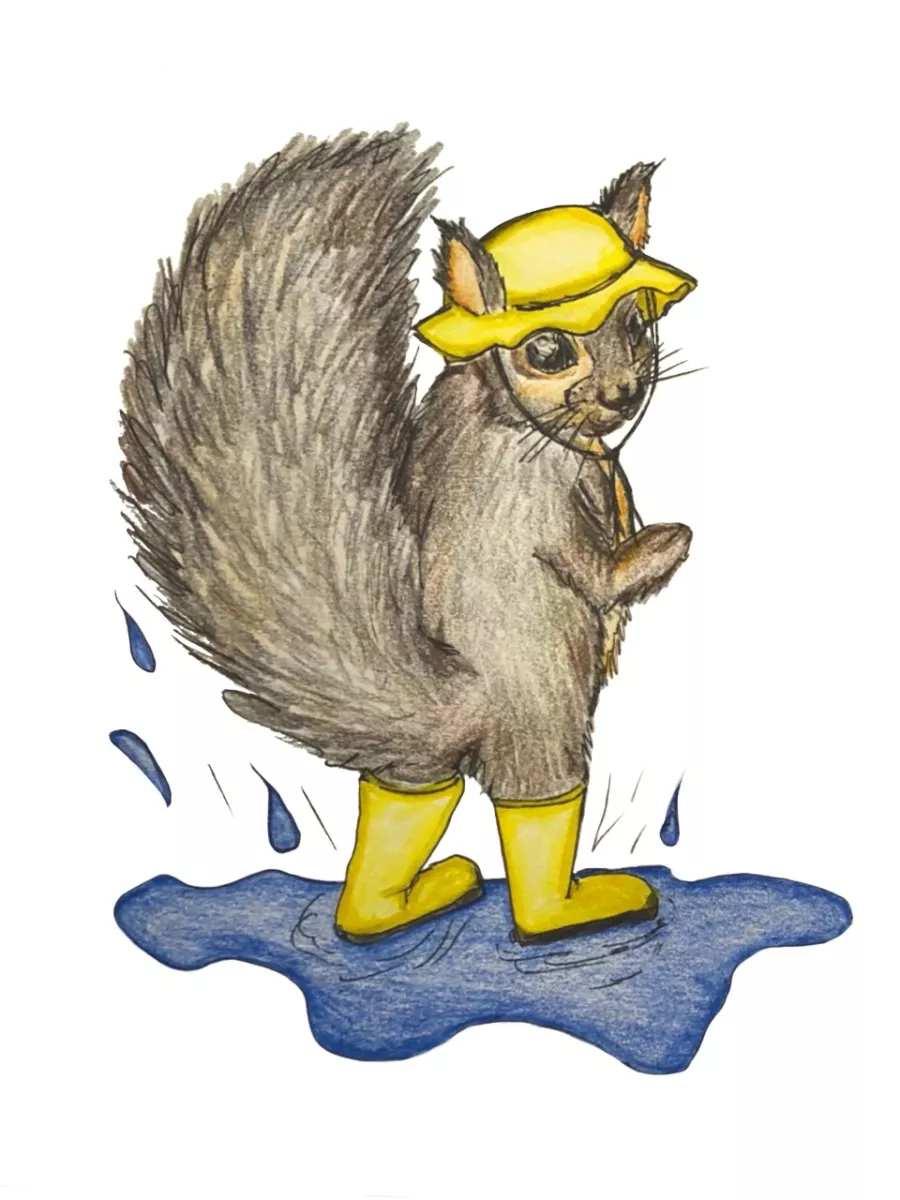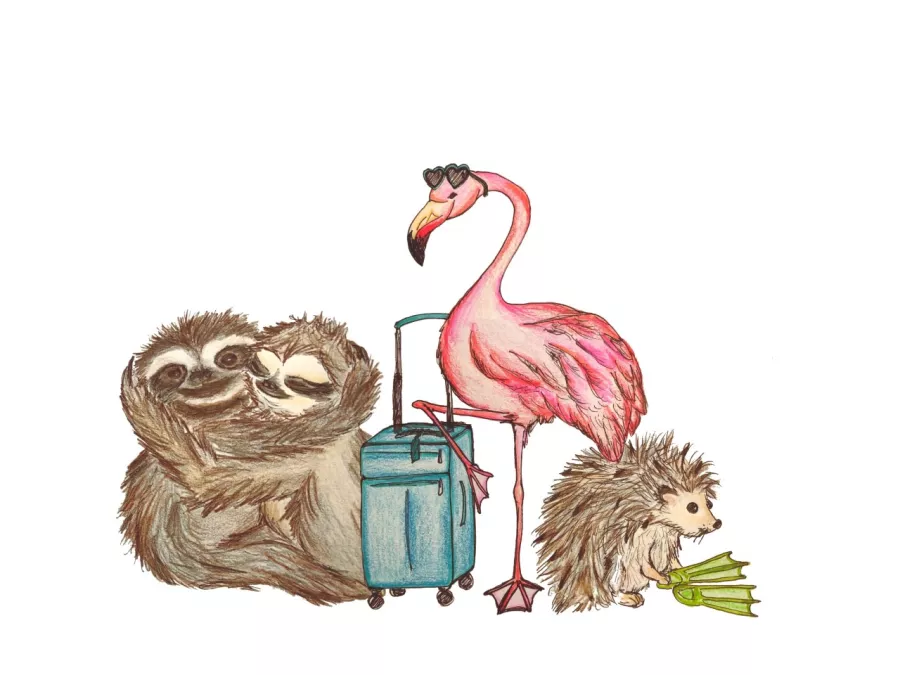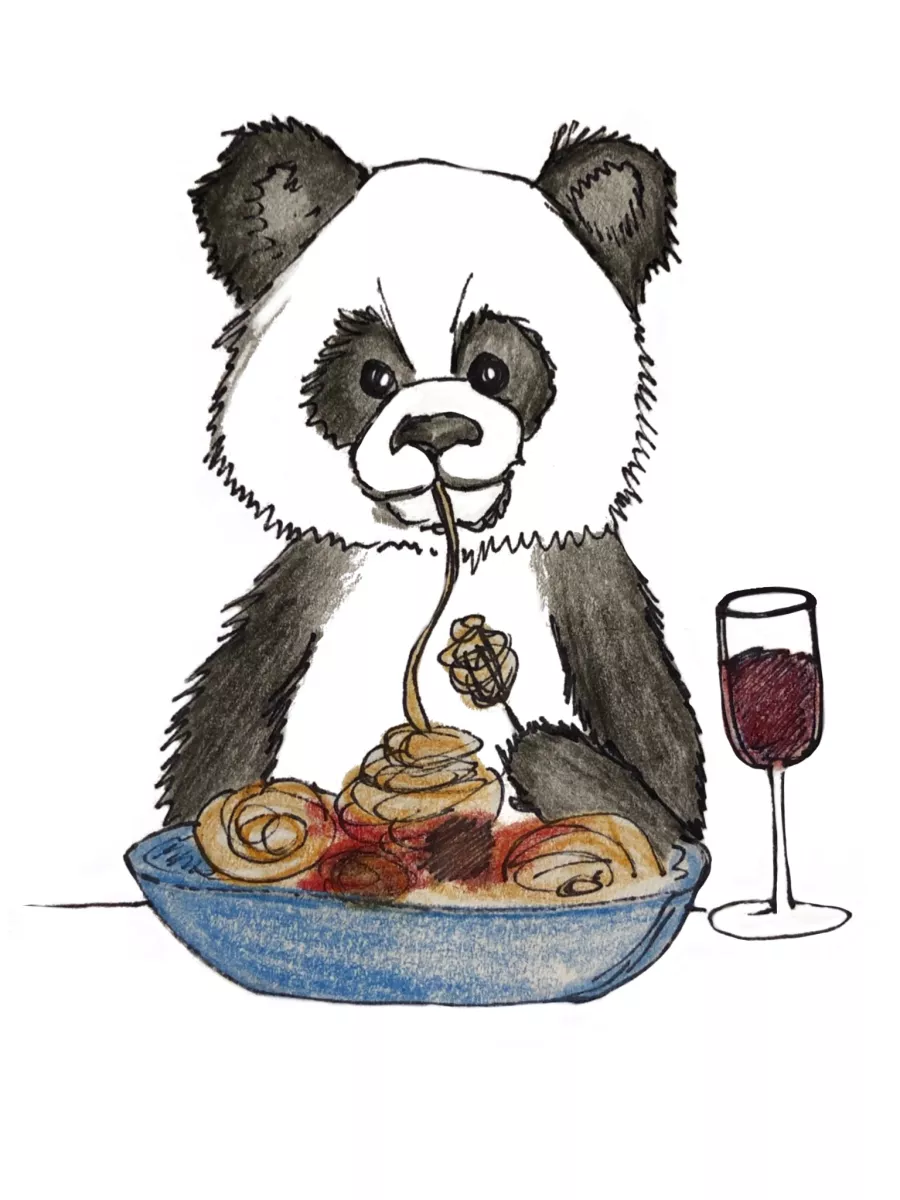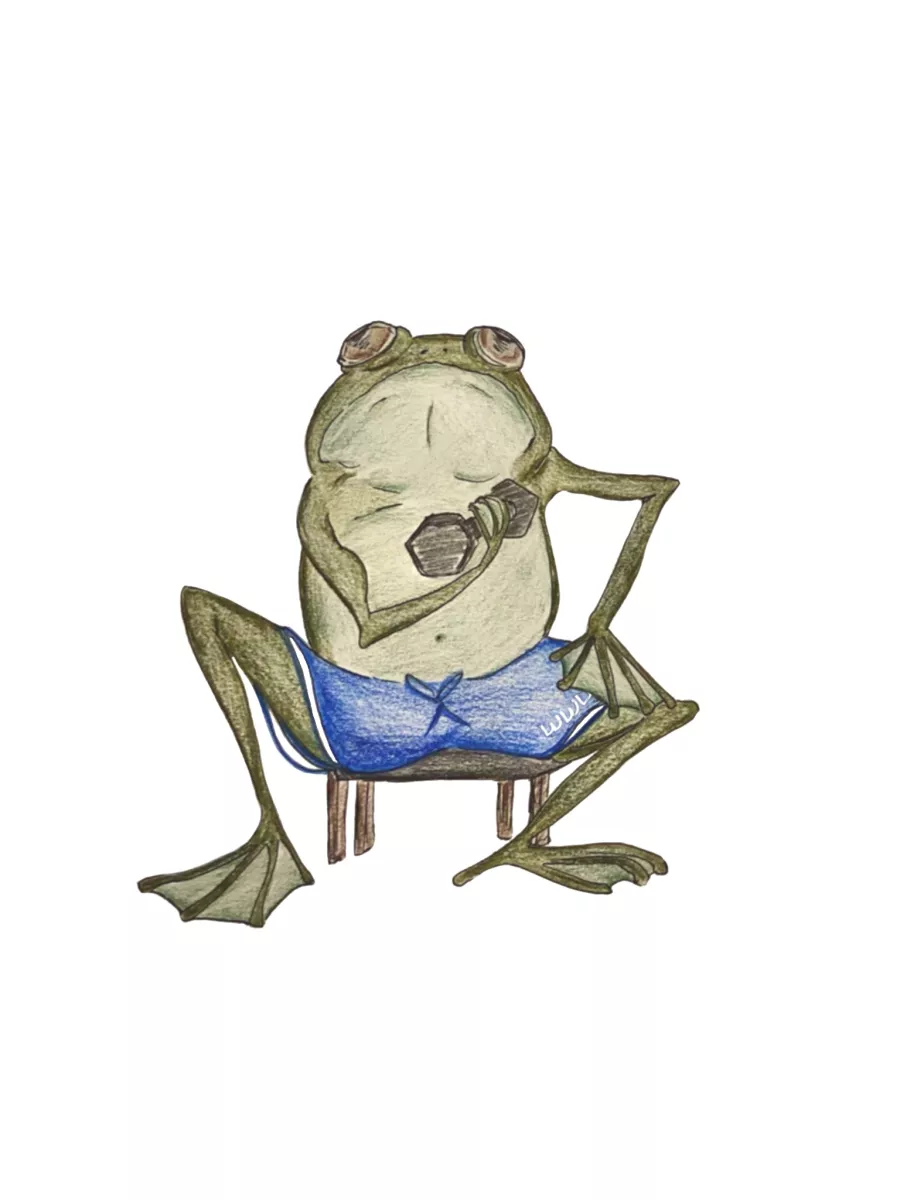It’s the 10th month of the pandemic. We’re working remotely, behind clear plastic panels—or not at all. We skipped big holiday parties and New Year’s Eve celebrations. Masks are hanging by the front door. Every cough comes with a side of dread. The sprint to stop COVID-19 has become a marathon that promises to stretch well into 2021.
It doesn’t just feel hard. It is.
“If you are feeling stressed in the face of all that is happening, congratulations! Your evolutionary stress-response is working and humming along in exactly the way it should,” says Dusti Jones, ’12, B.A., and ’15, M.S., psychology, a postdoctoral scholar in ambulatory biopsychology at Pennsylvania State University.
“Acknowledge the bad. Life right now is stressful and uncertain, and knowing that is normal and OK.”
The stress of the pandemic goes beyond concern about getting sick or infecting loved ones. Jones sees it as two-pronged: new demands placed on us as we adapt to virtual, isolated life, and the loss of economic, institutional and social resources we might usually turn to for support.
“We are all struggling to cope with the new and different expectations that have suddenly been thrust upon us—teaching our own children math strategies we have never learned, suddenly having to work remotely, or figuring out how to have mostly a virtual relationship with parents who are at risk,” says Jones. “What is particularly difficult is that at the same time we are trying to juggle all these new demands, we are also struggling with the loss of resources that we would normally use to help us cope with those demands.”
In the face of more stress and fewer resources, Jones recommends taking stock of the things that are making our lives harder.
“Are there any small, everyday things that are stressing you out? Do you need to keep all those? If not, get rid of them. If they are somewhat necessary, you can always add them back in when we are not in a pandemic anymore.”
Jones’s example is creative or artistic projects like knitting and crafting. They’re stress-relievers for some but are a source of stress for her, so she has let them go since the pandemic began. Others might find daily meal-planning to be a necessary stress that could be relieved with occasional take-out orders. Figure out what you can jettison for now. It doesn’t mean it has to be gone forever, but give yourself permission to let go of the stresses that you can control while there’s so much out there that you can’t. Don’t expect to be the perfect version of yourself during a pandemic.
“Now is a good time to practice a little self-compassion,” says Christie Scollon, associate professor in Western’s Department of Psychology. “Things are hard right now. Our world is a mess. There’s a lot of healing that needs to happen, and we can start by showing ourselves the same compassion we would show to a friend who’s having a rough time.”
Jones and Scollon both agree that routines—particularly routines that include enough sleep each night—are incredibly important. They provide a sense of meaning, coherence and resilience in a time that can otherwise feel chaotic.
“We have had many, many disruptions to our normal, daily lives,” Jones says. “Creating a daily routine provides structure to our days and can help us cope with all the uncertainty in which we currently find ourselves in by providing a sense of control.”
Is anyone out there?
Human beings are a social species, with a fundamental need to belong that is almost akin to our need for sleep or food, says Kory Floyd, ‘91, B.A., English, professor of communication and psychology at the University of Arizona. That need is more evident than ever as the pandemic has forced people to distance and isolate from one another, diminishing even the joys of casual conversation with strangers while out and about.
Socializing is “really baked into our DNA. One of the reasons we know it’s so important is that when we’re deprived of that, we suffer,” says Floyd, author of “The Loneliness Cure.” He notes that loneliness and isolation can translate to real health issues, sleep disorders or heightened anxiety and depression. “I think it’s coming home to so many people this year what happens when we really feel cut off.”
Technology has been an incredible boon when it comes to allowing people to see each others’ faces and hear each other’s voices, even in isolation. Virtual happy hours, weekly Facetimes with family, virtual movie nights and trivia nights and online gaming sessions are just a few of the ways that people have used technology to connect in ways they likely never would have thought of before the pandemic hit.
“When I see those kinds of behaviors, that kind of innovation, it really just underscores to me how much social interaction is a need, not just a preference, such that we will stretch the limits of any technology to be able to have that,” Floyd says.
Even with technology to bridge the divide, it’s natural to feel lonely in times like this. Don’t dismiss that feeling, in yourself or others, Floyd says. Instead, be aware of it, acknowledge it for what it is and normalize it by talking about it openly with friends and family.
If you find yourself struggling with loneliness, Floyd suggests a quick self-inventory to figure out if your loneliness is leading to unhealthy behavior. Ask yourself what you’re doing or considering doing to cope that could be risky: Drinking, excessive shopping, overeating, gambling, even obsessively exercising, are all behaviors that can give a temporary dopamine rush to fill the void of loneliness and provide a sense of escape. Are you mostly choosing a healthier alternative to maladaptive behavior—a bite of chocolate instead of a bar, a glass of wine instead of a whole bottle—or are you following those unhealthy impulses?
Something WWU Psychology Professor Kelly Jantzen said has stuck with Jones: “Practice doesn’t make perfect. It makes permanent.” That’s true for negative behaviors as well. That’s why it’s important to notice our emotional responses when they’re not healthy or productive. They’re telling us that something needs to be changed before it becomes permanent.
Look on the bright side
In a time of increased uncertainty and isolation, positive emotions can help protect us against the negative effects of stress on health and wellbeing. That doesn’t mean pretending everything is OK when it clearly isn’t.
“Now more than ever I think we need kindness, compassion, empathy, joy. It is often the positive things like joy that sustain us during difficulty,” says Scollon, who teaches a positive psychology class at Western. “At the same time, I don’t want to give the impression that people should always feel happy. In fact, that’s not really healthy. We need to be capable of a range of emotions, and we usually feel various emotions for a reason. Anger at injustice, for instance, is not only justified, it can be useful. Anger is mobilizing.”
In an ideal world, we’d be building up those good feelings by eating healthy, cutting smoking or drinking, and getting plenty of exercise. But those habits are hard to maintain in the midst of a stressful time, so instead Jones suggests focusing on three areas—physical, social, and emotional—and then trying to do something good for each area, each day.
“Give yourself credit for every little thing you do for your wellbeing, from taking a nap and savoring a cookie to surviving the day,” Jones says.
Maintaining social health is particularly important. Call or text your family and friends to check in. Make video chat dates. Do your best to hear another person’s voice, in real time, each day. Your physical good could be a walk, a healthy meal, a good night’s sleep, or drinking plenty of water. Emotional activity could be meditation or journaling, listening to your favorite music or relaxing outside. The outdoors has particular appeal in a time when so many activities are off limits, whether it’s discovering a newfound interest in birding, going on a hike or just having a quiet moment to yourself in your yard, even in the rain.
“Try to get outdoors at least once a day,” Scollon says. “Getting outside can serve double duty. If you exercise outdoors, you get the benefit of exercise and being in nature. If you don’t want to exercise, you can go outdoors and do a little bird watching and that will give you the benefit of being in nature and mindfulness.”
Practice paying attention to the good things, Jones says, and make sure to spend a few minutes every day doing something you know you enjoy and focus on every aspect of it that you like. Whether it’s the rush of warm water in your shower, or the taste of a favorite recipe, savor it. Dig out old photos of past vacations and silly candid moments, and reminisce with family about good times. Noticing and enjoying those moments of happiness can actually increase your enjoyment of future happy events and even build your health.
“Because I know the importance of positive emotions for my own mental and physical health, I try to really enjoy and linger on the good things that do happen—moments when my family members make me laugh or conversations with friends,” Jones says. “If nothing good has happened that day—and those days happen to us all—I try to remember something good that has happened in the past and relive those experiences.”
This too shall pass.
Looking forward to a post-pandemic future People are surprisingly resilient. Despite the hardships of the pandemic, Jones notes that research on growth after trauma suggests that people report having stronger relationships, feeling stronger as a person, or feeling greater appreciation for the things they have.
“We seem to gravitate towards happiness again once trauma has passed, and not only that, we seem to grow from it as well,” she says, noting a mantra that she has used during the pandemic. “ ‘Humans have evolved to not just survive, but to recover, and to grow. I am a human. In all likelihood, I will survive, recover, and grow.’ That mantra has comforted me, given me hope, and honestly, fills me with confidence.”
Floyd encourages people to think about and talk about and plan for their life post-pandemic. Talk about where you’ll go when you’re able to travel again, who you’ll see, where you’ll eat, what concerts you’ll want to see and what games you’ll go to. Daydreaming about the things you want to do reinforces the fact that there will be a future after COVID.
“Even though it definitely feels otherwise, this situation is temporary. We don’t know when it’s going to end, we don’t know how it’s going to end, but we do know it will end,” Floyd says. “We’ve been through pandemics many times in our history, and they always end. March feels like three years ago to me, but we won’t be in this state forever. There will be a time when we look back on it and talk about it in the past tense. That’s a really easy and important reminder to hold onto when we feel overwhelmed. Like every other crisis that we’ve faced as human beings, this too shall pass.”
